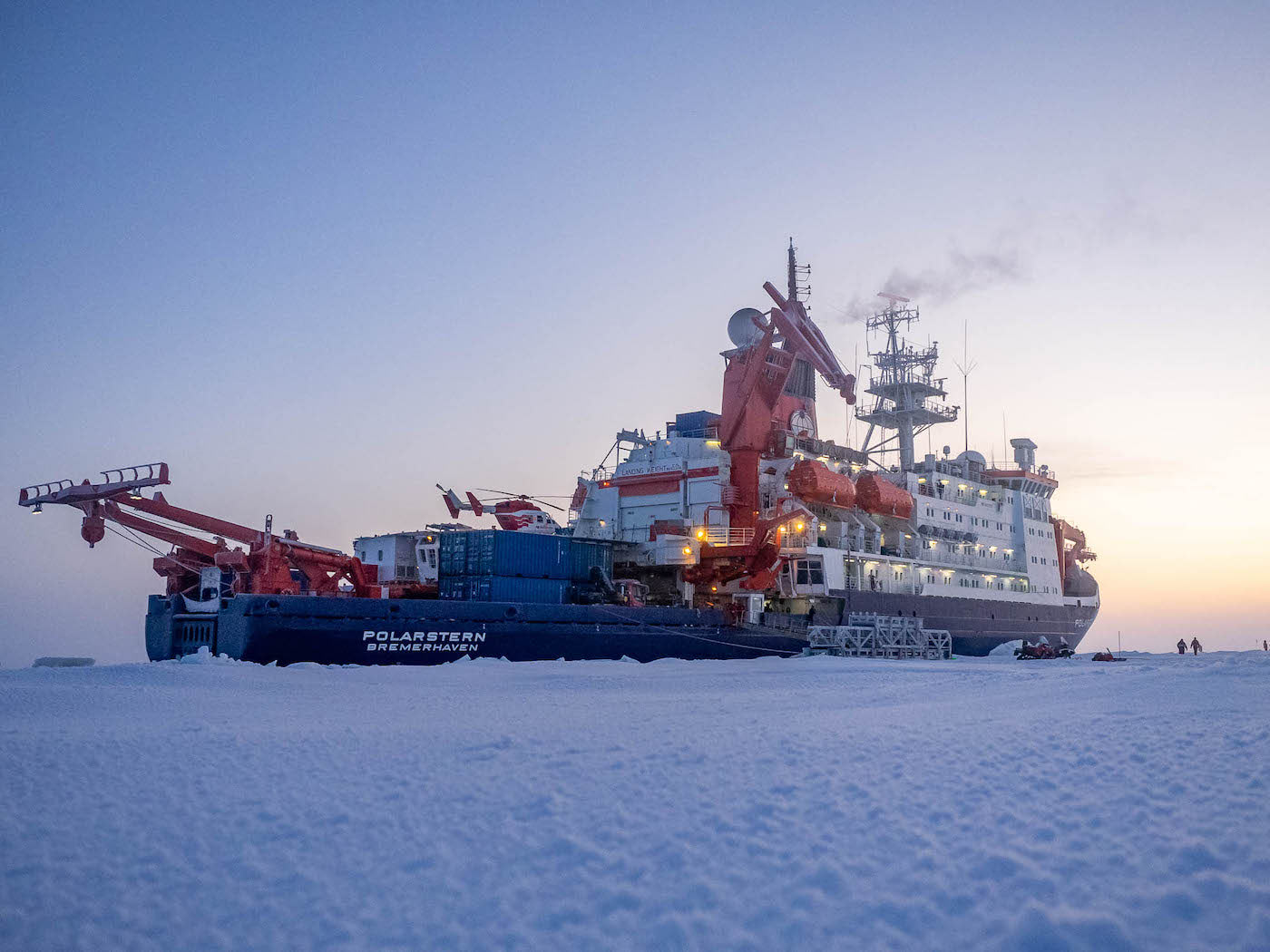- Undergraduate
Bachelor's Degrees
Bachelor of ArtsBachelor of EngineeringPartner School Dual-DegreeUndergraduate AdmissionsUndergraduate Experience
- Graduate
Doctoral Degrees
Doctor of PhilosophyPhD Innovation ProgramDoctor of Medicine-PhDGraduate AdmissionsGraduate Experience
- Research
- Entrepreneurship
- Community
- About
-
All Thayer News
Arctic Research Expedition Likely Faces Extreme Conditions In Fast-Changing Arctic
Apr 20, 2020 | NCAR & UCAR News
"The new Arctic Ocean has many surprises and it is hard to know what to expect. Insights from these model runs helped us design our measurement plans for MOSAiC." —Dartmouth engineering professor Don Perovich
New study suggests research ship frozen into sea ice may end operations early in 'a totally different ice regime'

The German icebreaker, the Polarstern, frozen into Arctic sea ice. Scientists at NCAR have modeled the potential tracks the ship could take as it follows the ice floe in the 'new Arctic' conditions. (Photo courtesy of Marc Oggier, IARC, @megavolts_ak.)
In October 2019, scientists trapped a ship filled with equipment in Arctic sea ice with the intention of drifting around the Arctic Ocean for a full year, gathering data on the polar regions and sea ice floes. However, a new study indicates there is a chance the expedition may melt out months before the year-end goal.
The MOSAiC (Multidisciplinary drifting Observatory for the Study of Arctic Climate) research team went through extensive preparation and training for the expedition, including analyzing historic conditions. The new research shows, however, that Arctic conditions have been changing so rapidly that the past may no longer be a guide to today.
Scientists at the National Center for Atmospheric Research (NCAR) have used an ensemble of multiple climate model runs to simulate conditions along potential routes for the polar expedition, using today’s conditions in the “new Arctic.” The results suggest that thinner sea ice may carry the ship farther than would be expected compared to historical conditions and the sea ice around the ship may melt earlier than the 12-month goal. Of the 30 model runs analyzed in the new study, five (17%) showed melt-out in less than a year.
The research, published in the journal The Cryosphere, was funded by the National Science Foundation, which is NCAR’s sponsor. The study's co-authors are from the University of Colorado Boulder and the school's Cooperative Institute for Research in Environmental Sciences, as well as Dartmouth's Thayer School of Engineering and the University of Alaska Fairbanks.
ABOUT THE ARTICLE
TITLE: GOING WITH THE FLOE: TRACKING CESM LARGE ENSEMBLE SEA ICE IN THE ARCTIC PROVIDES CONTEXT FOR SHIP-BASED OBSERVATIONS
AUTHORS: ALICE K. DUVIVIER, PATRICIA DEREPENTIGNY, MARIKA M. HOLLAND, MELINDA WEBSTER, JENNIFER E. KAY, DON PEROVICH
JOURNAL: THE CRYOSPHERE (URL: HTTPS://WWW.THE-CRYOSPHERE-DISCUSS.NET/TC-2019-145/)
Link to source:
For contacts and other media information visit our Media Resources page.
